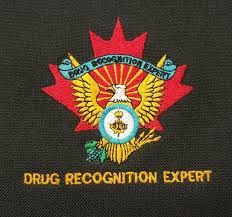What is a drug recognition expert. A drug recognition expert typically is a police officer with one week of additional training in the physical manifestations certain drugs have on the human body. The International Association of Chiefs of Police (IACP) coordinates the International Drug Evaluation and Classification (DEC) Program with support from the National Highway Traffic Safety Administration (NHTSA) of the U.S. Department of Transportation. In addition to officers, who are certified as DREs, the DEC Program educates prosecutors and toxicologists on the DRE process and the drug categories.

The importance of DRE’s can not be understated. Would you make any medical decisions after being evaluated by an individual with one week of drug interaction training who claims you are impaired. Should you plead guilty or go into a licensing board drug monitoring program based upon a police officer / DRE’s statement of impairment.
Welcome to the world of medical marijuana, driving while high enforcement, and the Commonwealth of Pennsylvania’s new medical marijuana program. Impairment from pot cannot be proven without blood or a voluntary admission or statement from an operator of a motor vehicle on a day of arrest that you ingested medical marijuana. This why the police will be using DRE’s to tell a judge or jury how medical marijuana impairs the operator of a car or medical professional doing their job.
Remember, medical marijuana is not marijuana buds or flowers. It is only eadibles. If a burnt marijuna smell is present, a DRE is not necessary. Skoing maijuana flower or bud is not allowed. In Pennsylvania medical marijuana is only legal through eating food made with THC oil’s or pills. As such, if you are a medical marijuana recipient, and you are involved in a traffic stop, the police officer cannot smell your medication. They cannot smell on your person that you ingested medical marijuana.
Therefore, do not answer any questions regarding medical marijuana usage. You will be admitting to having an illegal impairing substance in you blood. This admission will be utilized against you. Being a legal recipient of medical marajuana does not authorize you to operate a motor vehicle under the influence of medical marijuana. A DRE will say you are impaired and, therefore, in violation of the law.
Pennsylvania’s driving while drugged 75 Pa.C.S.A. §3802(d) still precludes any level of marijuana in the blood. Currently, the Pennsylvania DUI laws have not been altered to take in the consideration medical marijuana. Admitting you’re operating a motor vehicle having ingested medical marijuana is the same as it meeting that you’re operating a motor vehicle under the influence of any other type of schedule narcotic; you’re not allowed to.
As it stands right now, it’s a very minute amount of THC in your blood is classified as a DUI,” State police are looking into getting portable devices to test drivers for marijuana. The devices would be similar to those used to test suspected drunken drivers. In Pennsylvania, State Representative Delozier has said she’ll soon introduce legislation that will exempt medical marijuana patients as long as they are not driving while impaired. However, what is impaired? This the problem and question of driving and medical marajuana.
I represented many professional clients who take prescription narcotics to address various pain issues. These clients unfortunately have still been exposed to, and prosecuted for, violating Pennsylvania’s DUI laws for utilizing medications, even marajuana, for a diagnosied medical condition. The advantage of medical marijuana does not change the current legal landscape regarding prosecution or operating a motor vehicle under the influence of marijuana.
The most important part of this criminal process, then, is to not make a statement regarding your medical marijuana use. If detained and questioned by a local police department or state police drug recognition expert, be mindful of the following items: 1) they are not experts, 2) they are not medical doctors, 3) they are not trained in any pharmacology; 4) answer questions regarding medical conditions, 5) but do not answer any questions regarding medications being taken, 6) try to take note of the time of the traffic stop occurs versus the time when the DRE expert evaluate you.
Call my office to talk about any postive drug test for legal or illegal marijuana.













